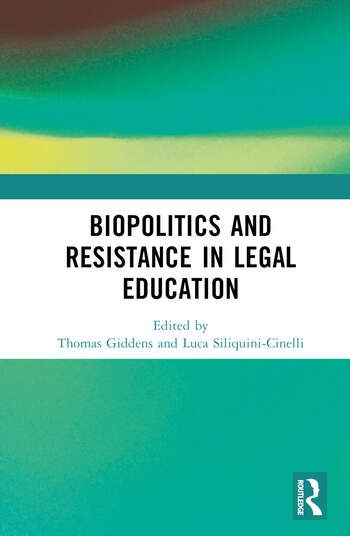
Taking up the study of legal education in distinctly biopolitical terms, this book provides a critical and political analysis of resistance in the law school.
Legal education concerns the complex pathways by which an individual becomes a lawyer, making the journey from lay-person to expert, from student to practitioner. To pose the idea of a biopolitics of legal education is not only to recognise the tensions surrounding this journey, but also to recognise that legal education is a key site in which the subject engages, and is engaged by, a particular structure – and here the particular structure of the law school. This book explores the resistance to that structure, including: different ways in which law’s pedagogic structures might be incomplete, or are being fought against; the use of less conventional elements of cultural discourse to resist the abstraction of the lawyer in students’ subject formation; the centralisation of queer and feminist discourses to disrupt the hierarchies of the legal curriculum; the use of digital technologies; the place of embodiment in legal education settings, and the impacts of post-human knowledges and contexts on legal learning.
Assembling original, field-defining essays by both leading international scholars as well as emerging researchers, it constitutes indispensable resource in legal education research and scholarship that will appeal to legal academics everywhere.